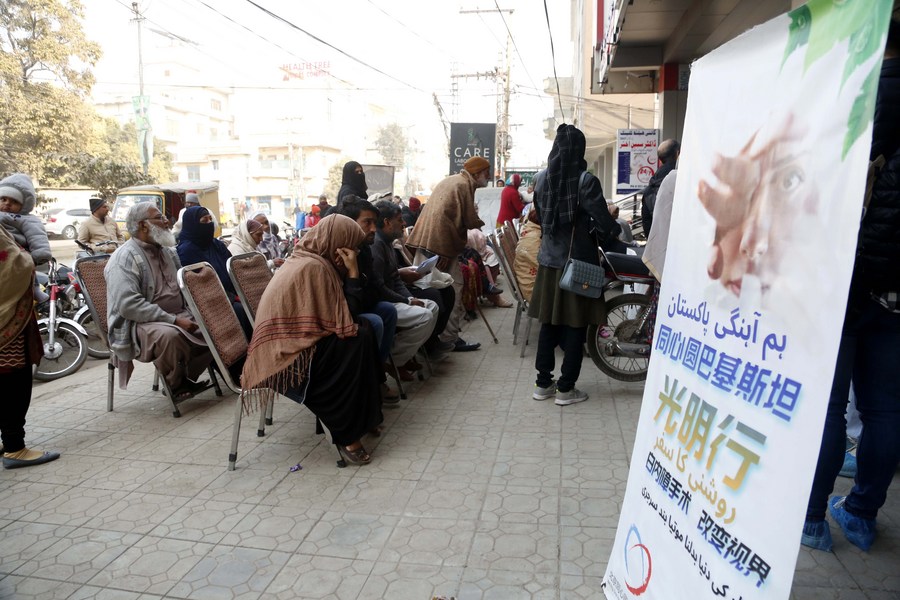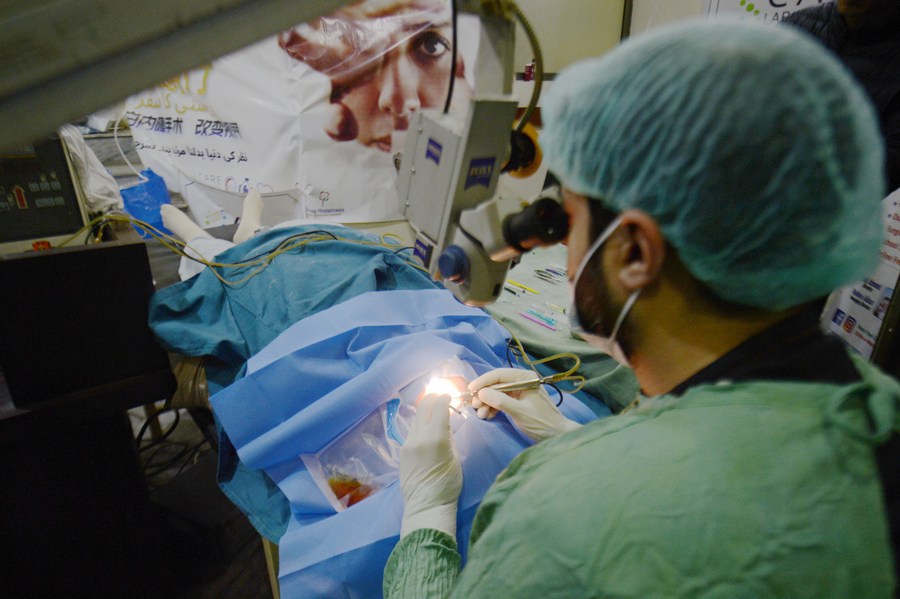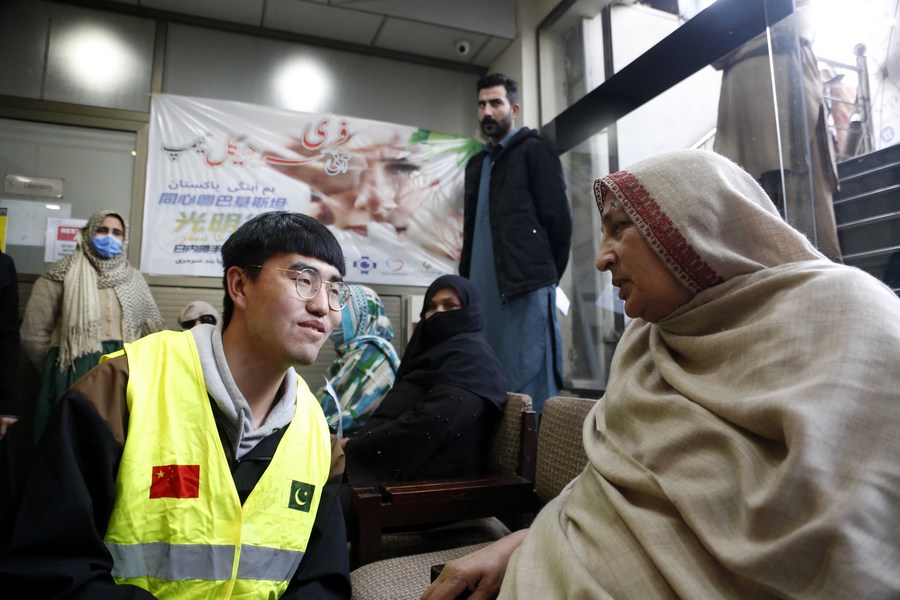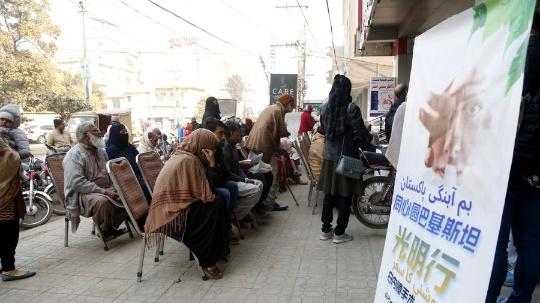
Patients wait for their turns at a medical camp launched by Chinese and Pakistani charities to provide free eye screening and cataract surgery in Rawalpindi, Pakistan, on Jan. 24, 2024. (Xinhua/Ahmad Kamal)
It was among the few camps that were part of a campaign launched by the Beijing One Heart Sphere Charity Foundation and China-Pakistan Youth Exchange Community in collaboration with local charity groups in different parts of Pakistan that started in mid-January.
by Ali Jaswal, Jiang Chao
RAWALPINDI, Pakistan, Jan. 26 (Xinhua) -- Rab Nawaz, a 63-year-old barber by profession, is a citizen of Rawalpindi city in Pakistan's eastern Punjab province, who has not been able to earn properly for the last two years due to cataract in one of his eyes.
All his six family members were financially dependent on him while his health was affecting his daily life until he recently visited a medical camp launched by Chinese and Pakistani charities to provide free eye screening and cataract surgery.
"I am happy that Chinese friends cared for us. We are poor people, we can't afford it. I didn't even have money for food, but today, after this free surgery, I will be able to properly earn," Nawaz told Xinhua when he visited the camp at Rawalpindi for a post-surgery checkup.
It was among the few camps that were part of a campaign launched by the Beijing One Heart Sphere Charity Foundation (BOHS) and China-Pakistan Youth Exchange Community (CPYEC) in collaboration with local charity groups in different parts of Pakistan that started in mid-January.

A doctor performs surgery on a cataract patient at a medical camp launched by Chinese and Pakistani charities to provide free eye screening and cataract surgery in Rawalpindi, Pakistan, on Jan. 24, 2024. (Xinhua/Ahmad Kamal)
Under the campaign, screening of around 1,500 patients took place, out of whom 100 needy people underwent cataract surgery in the Rawalpindi camp.
Talking to Xinhua, Ammar Afzal Tarar, an eye surgeon at the camp, said that the cost of the surgery in the country goes from 50,000 rupees (about 178 U.S. dollars) all the way up to 150,000 rupees which the majority of the poor family in Pakistan can't afford, adding that "this is a very good initiative taken by our Chinese friends."
He said the laser surgery that is being used in the campaign is utilized all over the world for the operation of this disease.
It's considered the latest and most effective treatment for the disease and is regarded as a golden standard for cataract operation, Tarar added.
Explaining the work and procedure at the camp, the surgeon said that the Chinese volunteers have been very helpful in the entire activity, noting that they have not just funded the project but, in fact, actively helped and supported at each and every step.
"Not only have they been motivating us, but when sometimes our spirits are down, and we feel exhausted during those stressful times, there has been a lot of support from the Chinese volunteers. They have been supportive of this whole campaign, this whole session," he said.

A Chinese volunteer inquires about a cataract patient's condition at a medical camp launched by Chinese and Pakistani charities to provide free eye screening and cataract surgery in Rawalpindi, Pakistan, on Jan. 24, 2024. (Xinhua/Ahmad Kamal)
Talking to Xinhua, Hamid, a 53-year-old local patient, said the Chinese volunteers are very cooperative and nice to him.
"I have felt that the Chinese are very cooperative and compassionate people. This initiative is a service to humanity, and nothing can match this," Hamid said, adding that the whole team is dealing with the patients in a very good way.
Wang Jing, a Chinese volunteer of the CPYEC and one of the organizers of the campaign, said that the joint efforts of the Pakistani and Chinese volunteers have brought light and hope to the patients.
"During our voluntary activities in Pakistan, we found that many poor people in the country, especially the elderly, are suffering from eye diseases such as cataracts," he said. Therefore, with the financial support of the BOHS this project has been made possible, he added.
"In the future, with the help of the BOHS, we hope to bring light to other Pakistani patients also to truly implement the concept of building an even closer China-Pakistan community with a shared future and contribute to China-Pakistan friendship," the Chinese volunteer added.




 A single purchase
A single purchase









